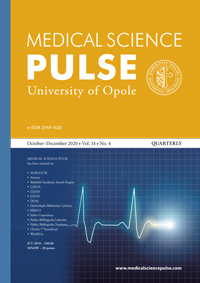Physioprophylaxis in the cognitive and practical competences of physical education students from Poland and Belarus.
Physioprophylaxis in the cognitive and practical competences of physical education students from Poland and Belarus.
Author(s): Kamil Zaworski, Vitaly Khramov, Zofia KubińskaSubject(s): Health and medicine and law
Published by: Uniwersytet Opolski
Keywords: health promotion; education; exercise; students
Summary/Abstract: Background: The task of physioprophylaxis is to popularize health-promoting behaviors and to shape and maintain the fitness and endurance of people of all ages in order to prevent disability. Aim of the study: The aim of the work is to present the diversity of cognitive and practical competences regarding the use of physical activity in physioprophylaxis of health threats by physical education students. The cognitive competences include: the attitudes, knowledge of the respondents, practical competences, the frequency of AF, and other health behaviors. Material and methods: The study administered an original questionnaire to a group of 224 physical education students from Grodno in Belarus (B, n = 124) and Biała Podlaska in Poland (P, n = 100). Results: Students from Belarus indicated the following as important health risk factors significantly more often (p < 0.05) than students from Poland: smoking (B = 76.6%, P = 59%, p = 0.006), alcohol abuse (B = 75%, P = 43%, p < 0.001) and permanent stress (B = 63.7%, P = 35%, p < 0.001). Health behaviors undertaken by the respondents for the protection and maintenance of health are primarily related to the observance of personal hygiene (B = 86.3%, P = 72.0%, p = 0.011), adequate sleep time (B = 62.9%, P = 45.0%, p = 0.010) and rational nutrition (B = 58.9%, P = 52.0%, p = 0.344). Conclusions: Assuming that the level of health competence (cognitive and practical) of the students in the field of physical education translates to a large extent into professional competence, the education of the respondents requires further development of the knowledge of health sciences. The curricula and standards of physical education should be oriented towards the development of health competence.
Journal: Medical Science Pulse
- Issue Year: 15/2021
- Issue No: 1
- Page Range: 4-11
- Page Count: 8
- Language: English

